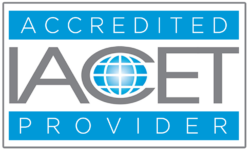Teachers wear many hats . . . colleagues, counselors, professionals, curriculum developers, assessment specialists, teammates . . . the list goes on. So, why do we also desperately need teachers to be leaders? The answer is simple, we need teachers to serve as leaders with decision-making capabilities because Teachers know students the best. They are the closest link to what’s happening in the classroom.
It is no secret that teacher effectiveness is the most important variable affecting student achievement. So, if teachers hold the key (and they do) why not involve them in leadership roles?
Teachers can be leaders in a formal sense, such as department chairs or instructional coaches, or they may be informal leaders who collaborate with others for the benefit of students. Michael Fullan writes,
“The litmus test of all leadership is whether it mobilizes people’s commitment to putting their energy into actions designed to improve things. It is individual commitment, but above all it is collective mobilization” (9).
Mobilizing others to improve teaching and learning makes a huge impact on the culture of a building. Informal teacher leaders are often ideally positioned to be intentionally influential in departments and schools. Colleagues are frequently open to the ideas and vision of their colleagues.
Charlotte Danielson reminds us that many attributes that make good teachers also make effective leaders. Teachers who are open-minded, respectful of others’ views, are enthusiastic, confident and decisive can have a powerful impact on the school.
Teacher leaders can also benefit from additional skills to support their work with adults. Teachers who have coaching skills (such as those in Cognitive Coaching), and facilitation skills to foster professional learning communities are well prepared to guide colleagues toward the shared vision in the school.
The Institute for Excellence in Education believes strongly in the power of teacher leaders and we are anxious to support teachers in this role. Please feel free to contact us to see about upcoming opportunities to gain additional skills as a teacher leader. www.excellenceined.org
Danielson, C. “The Many Faces of Leadership.” Educational Leadership, 65.1 (2007): 14 – 19. Print.
Fullan, M. Leading in a Culture of Change (Rev. ed.). San Francisco: Jossey-Bass, 2007. Print.

